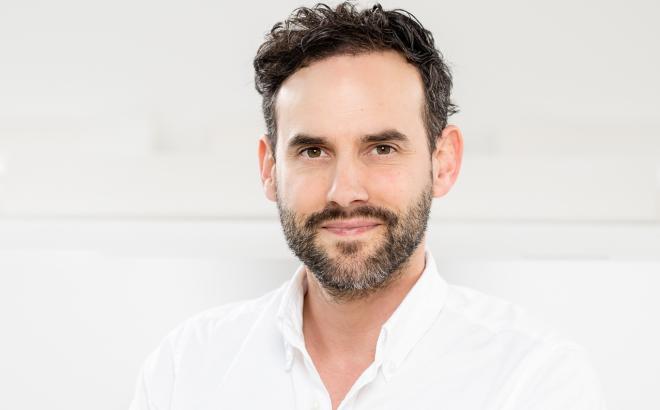Beate Schrank, Psychiatrist
Growing Up Is (Not) A Piece Of Cake
Unique in Austria, the Research Centre for Transitional Psychiatry, established at the University Hospital of Tulln as a teaching and research location of the Karl Landsteiner University of Health Sciences, represents an important milestone in the health care landscape. Dr Beate Schrank, psychiatrist, Senior Physician and scientist, about new ways in child and adolescent psychiatry, interesting approaches in research and why development needs to be redefined today.
Growing up is not always easy. It’s even more difficult in times of many crises and in a very fast-paced society – especially if challenges affect the mental health in a way that therapeutical and medical help is needed. Numerous research activities and statistics deal with the effects of difficult circumstances of life and the derived diagnoses, such as increase in anxiety, compulsions and attempted suicides of adolescents and young adults. But what does this mean in practice for the treatment of the patients and their therapies? Where is a need to catch up? Where are new methods and services needed? These are the questions Beate Schrank, scientist and Senior Physician at the University Hospital of Tulln focuses on: “When it comes to child and adolescent psychiatry, we face the problem of young doctors in these specific fields as set off from adult psychiatry. It’s difficult to define the phase of “growing up”, our world has become faster and expects more flexibility. If exemplified role models are missing, this flexible identity can lead to troubles especially for young people which are psychologically relevant, but have been investigated only little so far.” The expert thinks that flexibility and stability do not necessarily exclude each other, but new concepts are missing especially in the fields of diagnostics and psychiatry. “What we need is research that brings together different and complex aspects of society, but also psychological, biological, social and sociological understanding. These results can then be analysed to develop guidelines of action that can be useful in the treatment, but also in the prevention of mental disorders.”
Pursuing a holistic approach
Research in the field of transitional psychiatry, which is relatively new in psychiatry as such, represents a substantial step in this direction. It focuses on people aged between 15 and 25, or 30 at the most, and understands itself as a joint field of child/adolescent and adult psychiatry which offers adolescents a stable setting to cope with the challenging development of growing up. Under the leadership of Beate Schrank, the new Research Centre for Transitional Psychiatry in Tulln is developing a concept for a clinical unit in transitional psychiatry together with patients, their families and the psychosocial care staff: “The unique feature of the research centre is that we pursue an open innovation approach and integrate both stakeholders and clients.” The doctor has always been interested in multimodal research that integrates the target group. She considers this approach also relevant to obtain a holistic view and to combine qualitative and quantitative aspects. “An important milestone in my professional career was the time in England after my degree in medicine, where I studied Mental Health Service Research with an emphasis on psychiatry. I learnt to focus on the integration of clients. At the same time, I very intensely dealt with patient care and the power gradient between doctors and patients. With my part-time job in the Mental Health Research Network, I could gain a lot of experience for my practical work. This experience strongly shaped my role as psychiatrist, my understanding in relationships to clients, but also my self-reflexion.”
New tools and interventions for the future
Back in Austria, Beate Schrank took the opportunity to investigate a similar research approach together with other researchers in a project offered by the Ludwig Boltzmann Society. “As part of the project ‘D.O.T. – The Open Door’, we worked out a number of innovative measures to promote key social skills in children and to destigmatize mental disorders in the school sector together at the Karl Landsteiner University of Health Sciences (KL) during the past four years. In a participative process with representatives of schools and colleges, patient organisations, hospitals, therapeutic and consultation centres and the State of Lower Austria, digital and interactive tools were developed.” The manuals, modules and interventions, for example on emotional control or on various communication skills which are to be advanced in the Research Centre for Transitional Psychiatry shall serve as game-changers in the clinical everyday life and also be available to stakeholders such as educational or recreational facilities.
Beate Schrank was a senior physician at Tulln University Hospital and Head of the Transition Psychiatry Research Centre before taking over as Head of the General Psychiatric Department at Ottakring Clinic.
Link to the KL research information system KRIS





